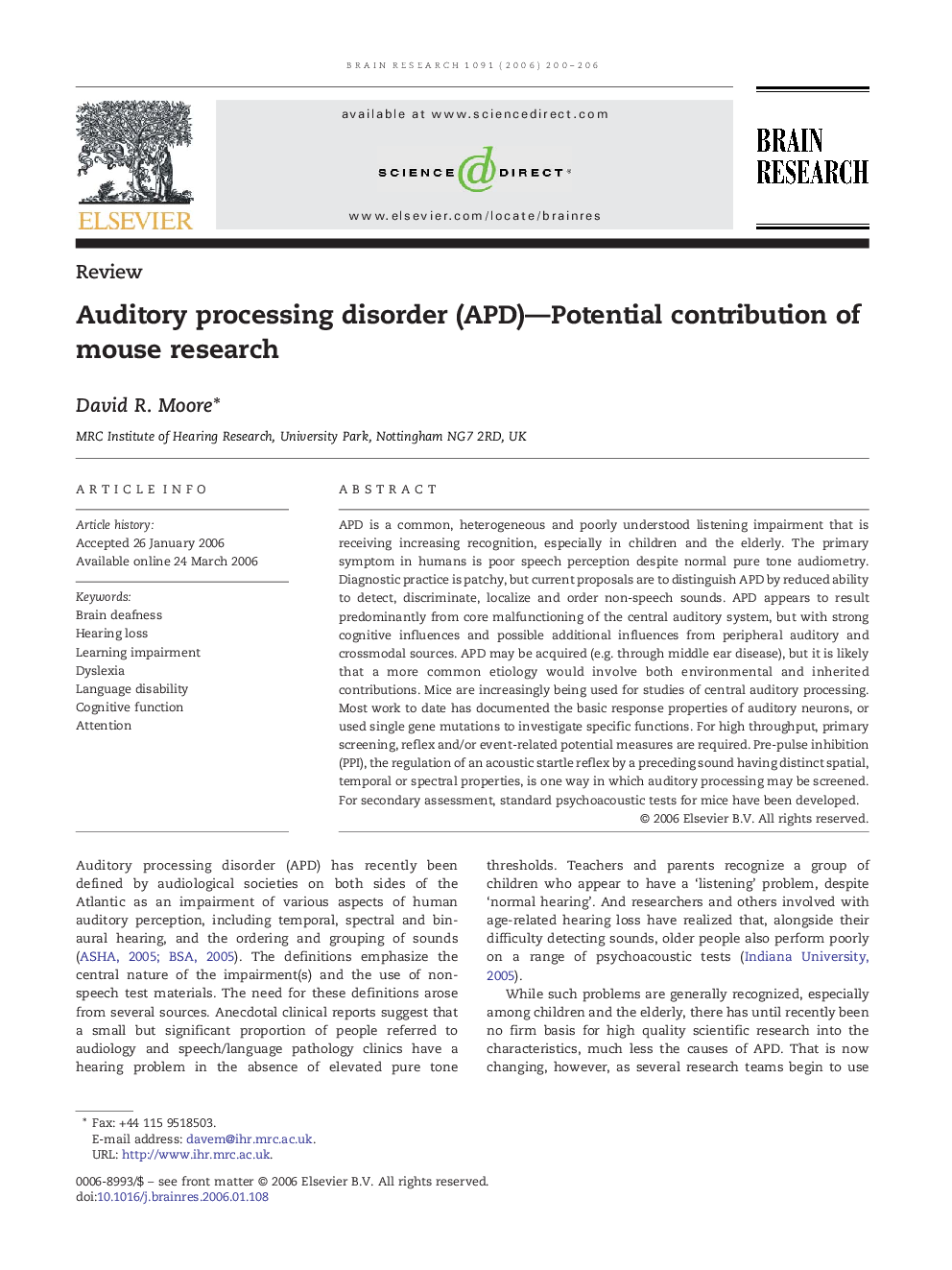| Article ID | Journal | Published Year | Pages | File Type |
|---|---|---|---|---|
| 4332836 | Brain Research | 2006 | 7 Pages |
APD is a common, heterogeneous and poorly understood listening impairment that is receiving increasing recognition, especially in children and the elderly. The primary symptom in humans is poor speech perception despite normal pure tone audiometry. Diagnostic practice is patchy, but current proposals are to distinguish APD by reduced ability to detect, discriminate, localize and order non-speech sounds. APD appears to result predominantly from core malfunctioning of the central auditory system, but with strong cognitive influences and possible additional influences from peripheral auditory and crossmodal sources. APD may be acquired (e.g. through middle ear disease), but it is likely that a more common etiology would involve both environmental and inherited contributions. Mice are increasingly being used for studies of central auditory processing. Most work to date has documented the basic response properties of auditory neurons, or used single gene mutations to investigate specific functions. For high throughput, primary screening, reflex and/or event-related potential measures are required. Pre-pulse inhibition (PPI), the regulation of an acoustic startle reflex by a preceding sound having distinct spatial, temporal or spectral properties, is one way in which auditory processing may be screened. For secondary assessment, standard psychoacoustic tests for mice have been developed.
